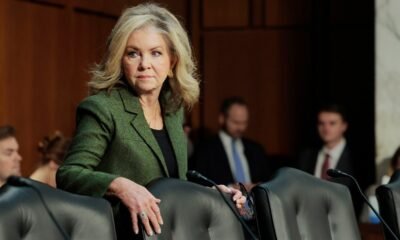INTERNACIONAL
Trump says Harvard’s foreign students are from countries paying ‘nothing’ for their education
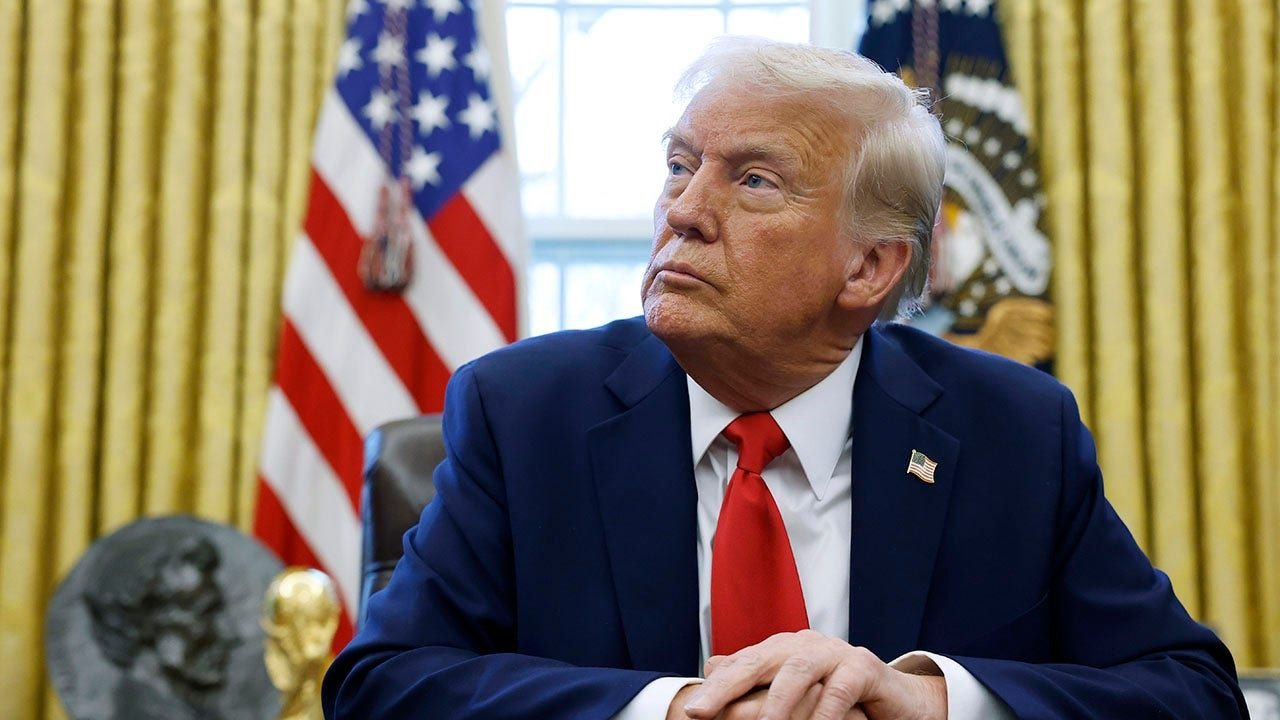
President Donald Trump on Sunday criticized foreign countries for paying «nothing» toward the education of their citizens who are attending college at Harvard and other U.S. institutions.
This comes amid the fight between the Trump administration and Harvard for its plans to revoke the university’s ability to enroll foreign students.
«Why isn’t Harvard saying that almost 31% of their students are from FOREIGN LANDS, and yet those countries, some not at all friendly to the United States, pay NOTHING toward their student’s education, nor do they ever intend to,» Trump wrote early Sunday morning on Truth Social. «Nobody told us that!»
JUDGE TEMPORARILY PAUSES TRUMP MOVE TO CANCEL HARVARD STUDENT VISA POLICY AFTER LAWSUIT
President Donald Trump criticized foreign countries for paying «nothing» towards the education of their citizens who are attending college at Harvard and other U.S. institutions. (Anna Moneymaker/Getty Images)
«We want to know who those foreign students are, a reasonable request since we give Harvard BILLIONS OF DOLLARS, but Harvard isn’t exactly forthcoming,» he continued. «We want those names and countries. Harvard has $52,000,000, use it, and stop asking for the Federal Government to continue GRANTING money to you!»
On Friday, a judge temporarily blocked the administration from canceling Harvard’s student visa program after the university filed a lawsuit against the federal government.
Harvard argued that the policy would affect more than 7,000 visa holders — nearly a quarter of the student body — and that the administration’s effort is a «blatant violation of the First Amendment, the Due Process Clause, and the Administrative Procedure Act,» according to its court filing.
«It is the latest act by the government in clear retaliation for Harvard exercising its First Amendment rights to reject the government’s demands to control Harvard’s governance, curriculum, and the ‘ideology’ of its faculty and students,» Harvard wrote in its complaint.
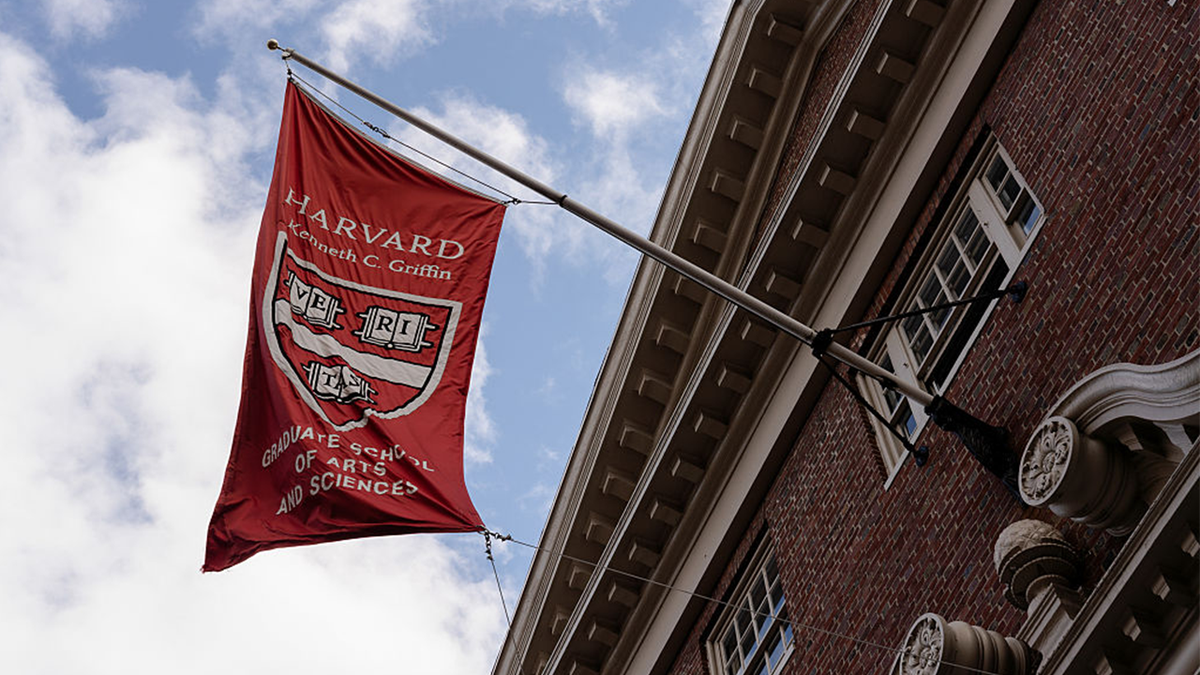
A Graduate School of Arts and Sciences flag on the Harvard University campus in Cambridge, Massachusetts, US, on Wednesday, April 16, 2025. (Getty Images)
FEDERAL JUDGE BLOCKS TRUMP ADMINISTRATION FROM TERMINATING INTERNATIONAL STUDENTS’ LEGAL STATUS
The Department of Homeland Security moved to terminate Harvard’s visa program after the university allegedly failed to provide extensive behavioral records of student visa holders the agency had requested.
The records sought include any footage of protest activity involving student visa holders, even if it’s not criminal, and the disciplinary records of all student visa holders in the past five years.
Requested records also include footage or documentation of illegal, dangerous or violent activity by student visa holders, any records of threats or the deprivation of rights of other students or university personnel.
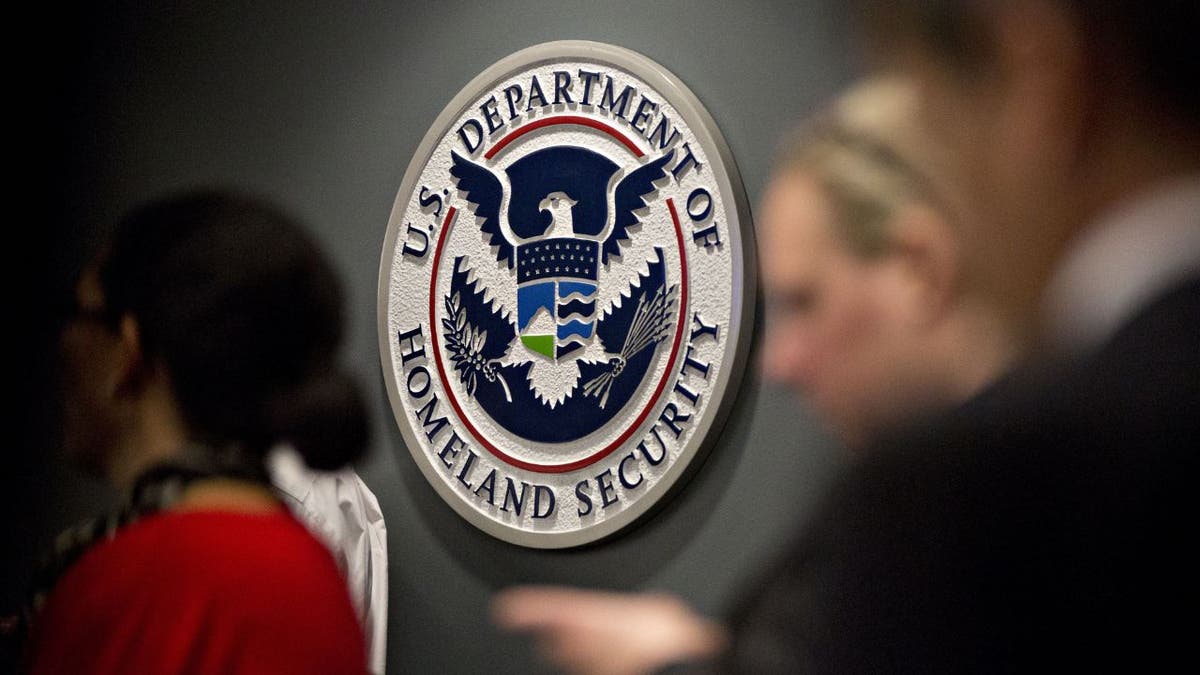
DHS had moved to terminate Harvard’s visa program after the university allegedly failed to provide extensive behavioral records of student visa holders the agency had requested. (Andrew Harrer/Bloomberg via Getty Images)
Harvard called the new policy «pernicious» and accused the administration of departing from «decades of settled practice» and coming «without rational explanation.» The university also said the policy was «carried out abruptly without any of the robust procedures the government has established to prevent just this type of upheaval to thousands of students’ lives.»
At least a dozen Harvard students have had their student visas revoked over campus protest activity. Secretary of State Marco Rubio said before Congress on Tuesday that the administration has probably revoked thousands already and would «proudly» revoke more.
CLICK HERE TO GET THE FOX NEWS APP
The administration has already frozen close to $3 billion in federal funding to the university, largely dedicated to research, over claims that Harvard has not adequately responded to alleged campus antisemitism in protests and has not moved to eliminate diversity, equity and inclusion practices.
Fox News’ Morgan Phillips contributed to this report.
Donald Trump,US Education,College,Politics,Law,US,Homeland Security,Marco Rubio
INTERNACIONAL
Ejercicios para fortalecer pies y tobillos: la base para moverse mejor a cualquier edad

Mejorar la salud de pies y tobillos puede favorecer todo tipo de actividades dijo Irene Davis, profesora de fisioterapia de la Universidad de Florida del Sur y expresidenta del Colegio Estadounidense de Medicina del Deporte. “El pie es la primera parte del cuerpo que entra en contacto con el suelo”, por lo que es muy importante que sea estable y resistente mientras caminas, corres y saltas.
Jay Hertel considera la velocidad al caminar un signo vital en los pacientes de edad avanzada. “Todo lo que se pueda hacer para ayudar a mantener una velocidad cómoda al caminar va a tener beneficios para la salud”, declaró, y eso empieza por la salud de los pies y los tobillos.
Leé también: Los ejercicios más efectivos para reducir la presión arterial, según los especialistas
La secuencia que sigue, diseñada por Hertel y Davis, puede ser beneficiosa para las personas activas, las que padecen lesiones o dolor en la parte inferior del cuerpo y cualquier otra persona que desee mantener la movilidad general a medida que envejece. Davis añadió que los ejercicios son “importantes para toda la cadena, no solo para el pie o el tobillo”.
Realizar los ejercicios descalzo ayuda a activar más músculos de pies y tobillos. “Cuanto más tiempo pases descalzo, más fuertes se volverán”. “Para algunas personas es contraintuitivo, pero si desarrollás unos pies fuertes, ayudará mucho a tus tobillos”.
Caminar o ejercitarse descalzo activa músculos que suelen pasar desapercibidos y fortalece la base del equilibrio corporal. (Foto: Freepik).
Resumen
Tiempo: 25 a 30 minutos
Intensidad: baja a media
Qué se necesita
- Una esterilla o colchoneta
- Una banda de resistencia larga
- Una toalla
- Un lugar bajo para anclar la banda (la pata de un sillón, o una pesa muy pesada)
- Una silla, un banquito o una mesa
- Un escalón
Dorsiflexión con resistencia
Repeticiones: Dos o tres series de 8 a 12 repeticiones
Propósito: Fortalece los músculos que ayudan a doblar el tobillo para llevar los dedos de los pies hacia la tibia, lo que resulta útil para caminar y agacharse.
Instrucciones:
- Anclar la banda de resistencia larga a algo pesado y resistente cerca del suelo (como la pata de un sillón o una mancuerna pesada).
- Sentarse en el suelo con una toalla enrollada abajo de la pantorrilla para levantar el talón. La planta del pie mirando al punto de anclaje de la banda.
- Enrollar el extremo de la banda alrededor de la parte superior del pie y desplazarse hacia atrás hasta que haya tensión en la banda.
- Tirar de los dedos y la parte superior del pie hacia vos, estirando la banda, y volver a la posición inicial lentamente.
Inversión con resistencia
Repeticiones: Dos o tres series de 8 a 12 repeticiones
Propósito: Fortalece los músculos que ayudan a estabilizar el tobillo.
Instrucciones:
- Con la banda anclada y la pantorrilla apoyada en la toalla enrollada, sentarse con el margen del pie mirando al punto de anclaje.
- Enrollar el extremo de la banda alrededor del medio del pie (el metatarso) y alejarse hasta que haya una ligera tensión en la banda.
- Flexionar el tobillo para tirar de la planta del pie hacia la otra pierna.
- Estirar la banda y volver lentamente a la posición inicial.
- Mantener la rodilla mirando hacia el techo.
- Concentrar el movimiento en el tobillo.
Leé también: Ni saltar la soga ni caminar: los 5 ejercicios recomendados en casa para mayores de 60
Eversión con resistencia
Repeticiones: Dos o tres series de 8 a 12 repeticiones
Propósito: Mejora la estabilidad, ayuda a prevenir las torceduras de tobillos.
- Con la banda reorientarse para que el arco del pie quede frente al punto de anclaje.
- Flexionar el tobillo para tirar de la planta del pie hacia afuera.
- Estirar y volver lentamente a la posición inicial
- Mantener la rodilla mirando hacia el techo.
- Concentrar el movimiento en el tobillo.

Trabajar los movimientos laterales del tobillo mejora el equilibrio y reduce el riesgo de torceduras, uno de los problemas más comunes en personas activas (Foto:Freepik).
Flexiones del arco del pie
Repeticiones: Dos o tres series de 8 a 12 repeticiones
Propósito: Fortalece los músculos a lo largo del arco del pie, para que pueda absorber la fuerza más fácilmente y ayudar al resto de la parte inferior del cuerpo a mantener la alineación y la estabilidad.
- Sentarse en una silla con los pies en el suelo.
- Presionar los dedos y el metatarso contra el suelo.
- Deslizar el metatarso hacia el talón mientras se levanta el arco del pie del suelo.
- Aguantar 5 segundos, relajar y repetir.
Puede que los dedos de los pies se encojan en el primer intento del ejercicio. Con el tiempo, es mejor practicar la elevación del arco del pie manteniendo los dedos estirados.
Cuando te sientas cómodo con el movimiento podes intentarlo de pie, y si progresás, podes hacerlo parado de un solo pie con el apoyo de una silla o mesa.
Elevaciones de pantorrilla
Repeticiones: Dos o tres series de 8 a 12 repeticiones
Propósito: Mejora la amplitud de movimiento de los tobillos para la flexión plantar y aumenta la estabilidad y la potencia del tobillo.
- Colocarse con los pies separados al ancho de las caderas.
- Levantar los talones
- Bajar lentamente
Para hacerlo más difícil, se puede parar sobre un pie y levantar el talón y bajar. Para progresar a partir de ahí, se puede poner de pie con los dedos sobre un escalón o caja, y con el talón por debajo de la superficie del escalón. Levantar el talón y bajarlo a la posición inicial con control.
Si tenés tendinitis de Aquiles, hace este ejercicio en el suelo; la mayor amplitud de movimiento con el escalón o la caja puede provocar irritación.
Leé también: Cómo aliviar el “cuello tecnológico” con siete ejercicios simples
Equilibrio en una sola pierna
Repeticiones: Tres o cuatro repeticiones de 10 a 60 segundos cada una
Propósito: Mejora la estabilidad del tobillo para prevenir caídas y mejorar el equilibrio y el control en general.
- Colocarse de pie sobre un suelo duro con una silla, mesa o banco cerca.
- Poner la mano en la superficie cerca para mantener el equilibrio.
- Pararse sobre un pie y aguantar un minuto, después descansar.
Si un minuto te parece inalcanzable, es mejor empezar con menos y aumentar la duración de a poco. Estos ejercicios se pueden hacer sentado o de pie, incluso apoyado en una silla (Foto: Freepik).
Estocada en W
Repeticiones: Hasta 30 repeticiones en cada una de las tres direcciones, con cada pie
Propósito: Mejorar la amplitud de movimiento del tobillo.
- Pararse erguido, con una buena postura, con el pie derecho adelante y el izquierdo atrás.
- Mirar hacia adelante y dejar la pierna izquierda estirada y la derecha flexionada.
- Doblar la rodilla derecha y moverla hacia adelante todo lo que puedas mientras se mantiene el talón derecho en el piso.
- Volver a la posición inicial y empujar la rodilla derecha hacia adelante por encima del dedo meñique.
- Volver a la posición inicial para que quede encima del dedo gordo del pie (a no ser que cause dolor).
Llevar la posición de la rodilla hasta donde estés más cómodo.
Equilibrio y alcance
Repeticiones: Dos o tres series de 8 a 12 repeticiones
Propósito: Mejora el equilibrio y la coordinación.
- Ponerse de pie en un suelo duro.
- Mantener el equilibrio sobre el pie derecho con la rodilla ligeramente flexionada.
- Doblar un poco más la rodilla derecha mientras se estira el talón izquierdo hacia adelante.
- Volver a la posición inicial.
- Extender el talón izquierdo hacia adelante hasta un ángulo de 45 grados y volver a la posición inicial.
- Estirar el pie izquierdo hacia un lado y volver.
- Repetir.
Concentrate en mantener el equilibrio con el tobillo que está en el suelo. Conservar la movilidad y la fuerza en los pies puede marcar la diferencia entre una vida activa y una con limitaciones. Cada paso cuenta (Foto:Freepik)
Leé también: Si te levantás con dolor en el cuerpo, estos cinco ejercicios te ayudarán a mejorar las mañanas
Saltos
Repeticiones: Dos o tres series de 8 a 12 repeticiones.
Propósito: Entrena la estabilidad, la coordinación y el equilibrio; ayuda a tus pies y tobillos a absorber la fuerza con mayor comodidad.
- Ponerse de pie con los pies separados a la anchura de las caderas.
- Salta de arriba hacia abajo aterrizando sobre los metatarsos ligeramente.
Para hacerlo más difícil, se puede saltar sobre un solo pie. Para progresar a partir de ahí, saltar de lado a lado sobre ambos pies, y luego de lado a lado sobre un pie.
Si no te sentís cómodo saltando, podes rebotar sobre las puntas de los pies, permitiendo que los talones suban y bajen rápidamente. También puedes saltarte este ejercicio.
*Por Anna Maltby, entrenadora personal, instructora de Pilates en esterilla y autora del boletín How to Move.
The New York Times, tobillo, pies
INTERNACIONAL
Vance warns Hamas as Gaza peace plan’s Civilian Military Cooperation Center opens
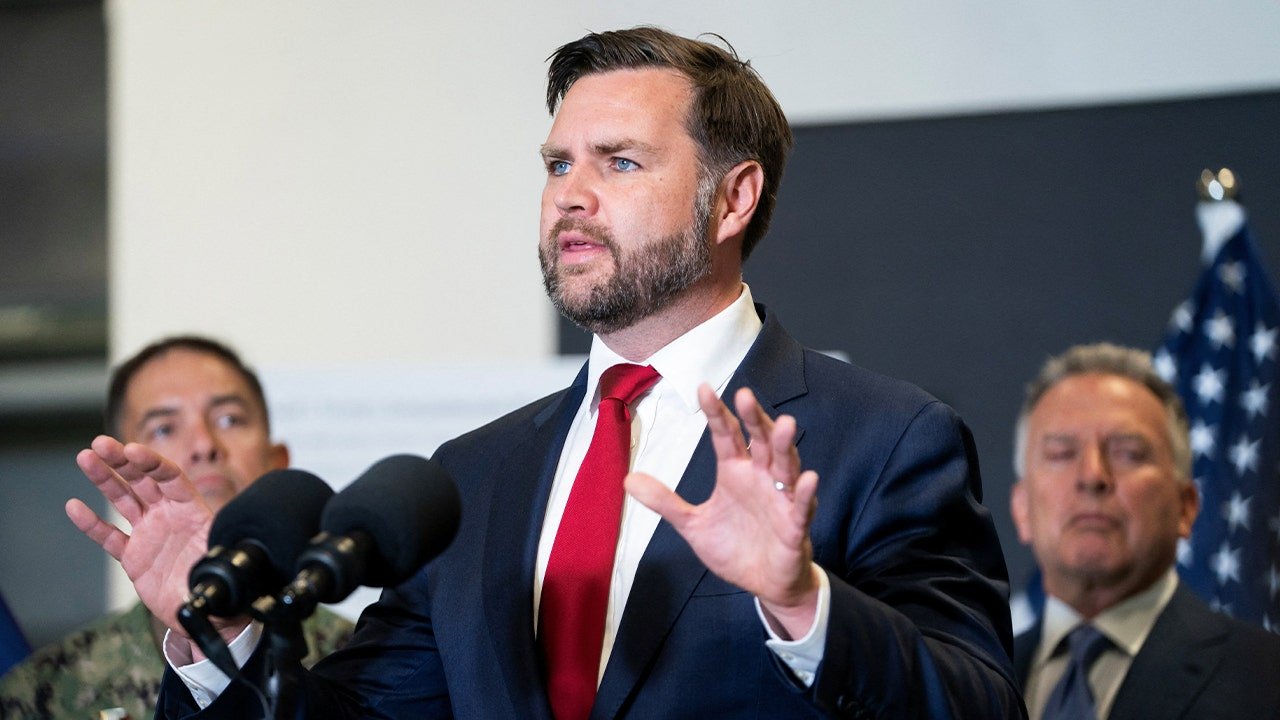
NEWYou can now listen to Fox News articles!
Vice President JD Vance issued a warning to Hamas on Tuesday while speaking to reporters at the new Civilian Military Cooperation Center (CMCC), which plays a critical role in the historic ceasefire deal.
«The terms of the 20 point plan that the president put out there is very clear. It’s supported not just by Israel, by, but by all of our Gulf Arab friends. It’s that Hamas has to disarm. It’s that Hamas has to actually behave itself and that Hamas, while all the fighters can be given some sort of clemency, they’re not going to be able to kill each other, and they’re not going to be able to kill their fellow Palestinians,» Vance said.
«Right now, where I stand, I feel confident that we’re going to be in a place where this peace lasts, where it’s durable, and if Hamas doesn’t cooperate, then, as the United States has said, Hamas is going to be obliterated,» Vance added.
President Donald Trump urged Hamas to move quickly on a U.S.-brokered peace proposal aimed at ending the Gaza conflict. (Alex Wong/Getty Images; MAHMUD HAMS/AFP via Getty Images)
The vice president’s warning came after President Donald Trump issued one of his own, saying that if Hamas did not act in accordance with the agreement, the terror organization’s end would be «fast, furious and brutal.»
During a meeting with Australian Prime Minister Anthony Albanese on Monday, Trump said that Hamas would be eradicated if it did not hold up its end of the deal. The president issued similar warnings since the peace deal went into effect last week.
In addition to his warning to Hamas, Vance scolded the media over its apparent «desire to root for failure,» saying that any setbacks or hiccups did not necessarily mean the end of the deal.
«Every time something bad happens and every time that there’s an act of violence, there’s this inclination to say, ‘oh, this is the end of the ceasefire. This is the end of the peace plan.’ It’s not the end. It is, in fact, exactly how this is going to have to happen when you have people who hate each other, who have been fighting against each other for a very long time. We are doing very well. We are in a very good place,» Vance said before praising the team working to implement the Gaza deal.
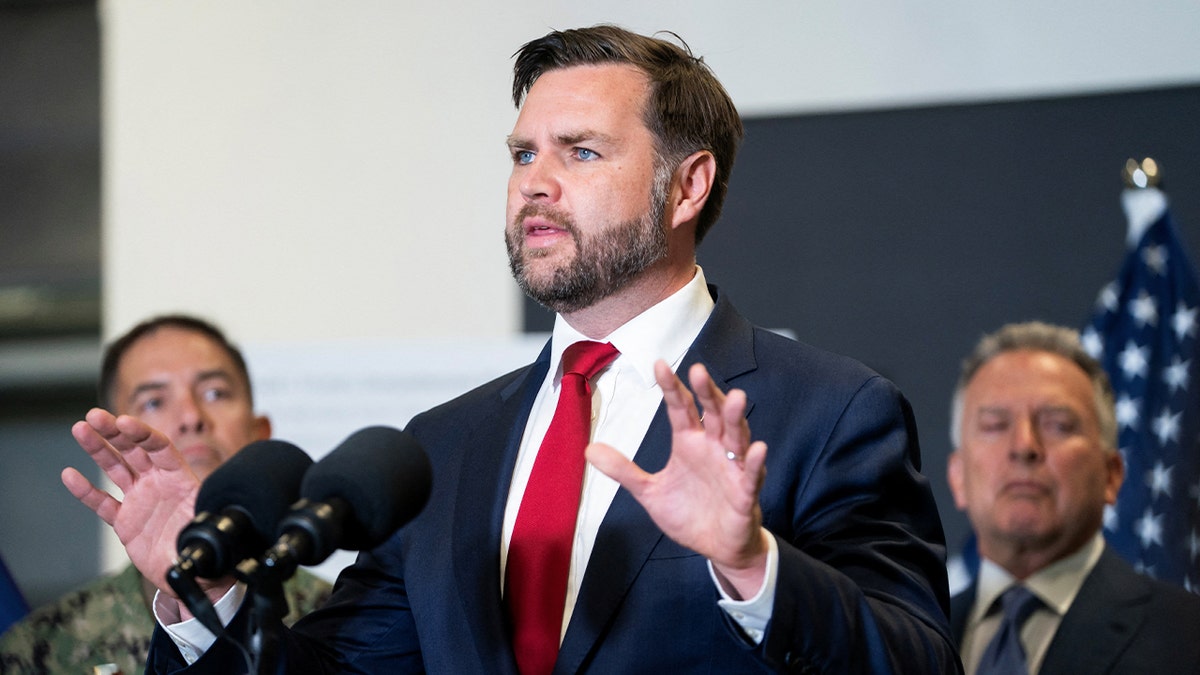
Vice President JD Vance speaks during a press conference following a military briefing at the Civilian Military Coordination Center in southern Israel Oct. 21, 2025. (Nathan Howard/Pool via Reuters)
While Vance demanded Hamas disarm in accordance with the deal, he refused to give the terrorist organization an exact deadline, something Trump has not done either.
«The president actually put out a truth this morning that I thought was very instructive. We know that Hamas has to comply with the deal, and if Hamas doesn’t comply with the deal, very bad things are going to happen. But I’m not going to do what the president United States has thus far refused to do, which is put an explicit deadline on it, because a lot of this stuff is difficult. A lot of this stuff is unpredictable,» the vice president said.
The opening of the CMCC is a major milestone in the implementation of the historic deal. Navy Adm. Brad Cooper, head of CENTCOM, attended the news conference and said «200 of America’s sons and daughters, who wear the cloth of the nation, have stepped up and are serving here. I just couldn’t be prouder.»
Jared Kushner was also in attendance at the news conference where he spoke about plans for Gaza reconstruction and the efforts currently underway in the ceasefire deal. Kushner noted that there was «surprisingly strong coordination between the United Nations and Israel» on efforts to get aid to Palestinians in the enclave.
Kushner also said that progress was being made towards getting back the remains of all deceased hostages held in the Gaza Strip.
Prior to Vance’s arrival in Israel, several hostages who were freed as part of the historic deal brokered by the Trump administration met with U.S. Special Envoy Steve Witkoff and Kushner. The meeting included Omri Miran, Gali Berman, Ziv Berman, Yosef Chaim Ohana, Matan Angrest, Bar Kupershtein, Segev Kalfon, Nimrod Cohen and Eitan Horn.
The Hostages and Missing Families Forum said the former hostages thanked Witkoff and Kushner and expressed «profound gratitude to President Trump for making their freedom a top priority and working tirelessly to ensure their release after more than two years in captivity.»
When speaking at the CMCC, Witkoff said the meeting was an «emotional moment» and that he felt «blessed to be in that room.»
«I didn’t see any victims in that room. I saw strong people who have come out under very difficult circumstances. Their families are reunited, and they are so grateful,» Witkoff said.
In his closing remarks, Vance expressed his trust in God’s providence and said he believed the job could be done.
«I know that Christians have many titles for Jesus Christ, and one of them is the Prince of Peace. And I’d ask all people of faith, in particular my fellow Christians, to pray that the Prince of Peace can continue to work a miracle in this region of the world. I think that we have made incredible strides over the past week. We’re going to have to make a lot more. But I think with your prayers, with God’s providence and with a very good team behind me, I think we’re gonna get it done,» Vance said.
The vice president said that while in Israel, he hopes to visit the Church of the Holy Sepulchre, which Christians believe is the site where Jesus Christ was crucified.
This is a developing story. Please check back for updates.
world,israel,donald trump,jd vance,middle east
INTERNACIONAL
Blackburn says Trump support was ‘common thread’ among lawmakers reportedly targeted by Jack Smith
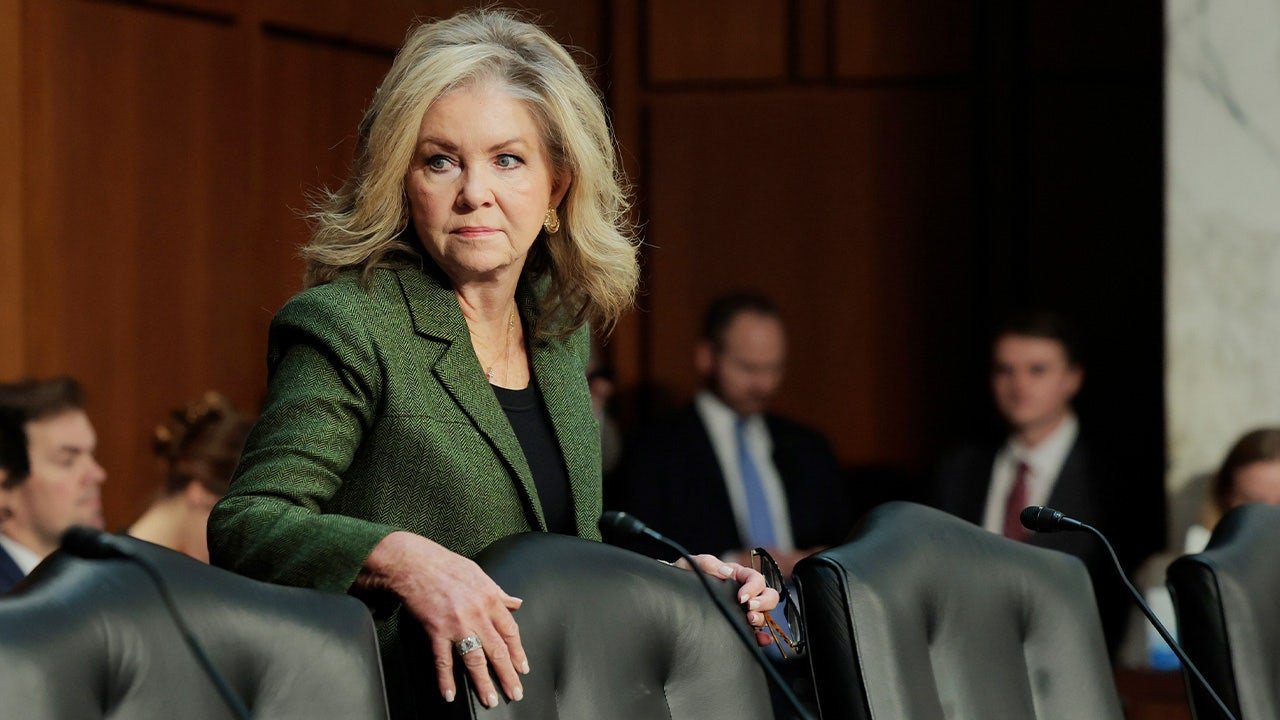
NEWYou can now listen to Fox News articles!
FIRST ON FOX: Sen. Marsha Blackburn, R-Tenn., was one of nearly a dozen Senate Republicans allegedly probed by former Special Counsel Jack Smith, an investigation she wasn’t aware of until earlier this month.
She was one of several Senate Republicans that Smith allegedly surveilled as part of his investigation into the Jan. 6, 2021, Capitol riots. But it was only revealed earlier this month by the FBI — thanks to an oversight request by Senate Judiciary Chair Chuck Grassley, R-Iowa — that Smith allegedly requested phone records on her and others.
Blackburn told Fox News Digital in an exclusive interview that until the documents from Smith’s «Arctic Frost» investigation were revealed, she had no idea that her phone records were being surveilled.
JACK SMITH INVESTIGATORS NEED TO ‘PAY BIG’ FOR JAN. 6 PHONE RECORDS PROBE, WARNS SEN. GRAHAM
Sen. Marsha Blackburn, R-Tenn., believed that the «common thread» on former Special Counsel Jack Smith’s alleged spying on congressional Republicans was their support of President Donald Trump. (Anna Moneymaker/Getty Images)
She believed the «common thread» behind the former special counsel’s probe, which was carried out in 2023, was because «the eight of us are all Republicans. We all support President Trump.»
Blackburn and Sens. Lindsey Graham, R-S.C., Ron Johnson, R-Wis., Josh Hawley, R-Mo., Cynthia Lummis, R-Wyo., Bill Hagerty, R-Wyo., Dan Sullivan, R-Alaska, Tommy Tuberville, R-Ala., and Rep. Mike Kelly, R-Pa., were all reportedly part of Smith’s investigation.
In response, Blackburn and many of the others that were allegedly surveilled by Smith want to see him disbarred.
«This is about making certain we have one tier of justice, and that we stop this two tiers of justice,» Blackburn said. «And if they can do this to eight sitting U.S. senators, what could they possibly — I mean, think about how, what they must be doing to conservatives in this country.»
Last week, she and Graham, Tuberville, Sullivan and Kelly sent a letter to Attorney General Pam Bondi demanding an investigation into Smith, and that he be referred to the Department of Justice’s (DOJ) Office of Professional Responsibility.
HAGERTY PRESSES VERIZON OVER FBI’S ACCESS TO HIS PHONE RECORDS DURING JACK SMITH PROBE
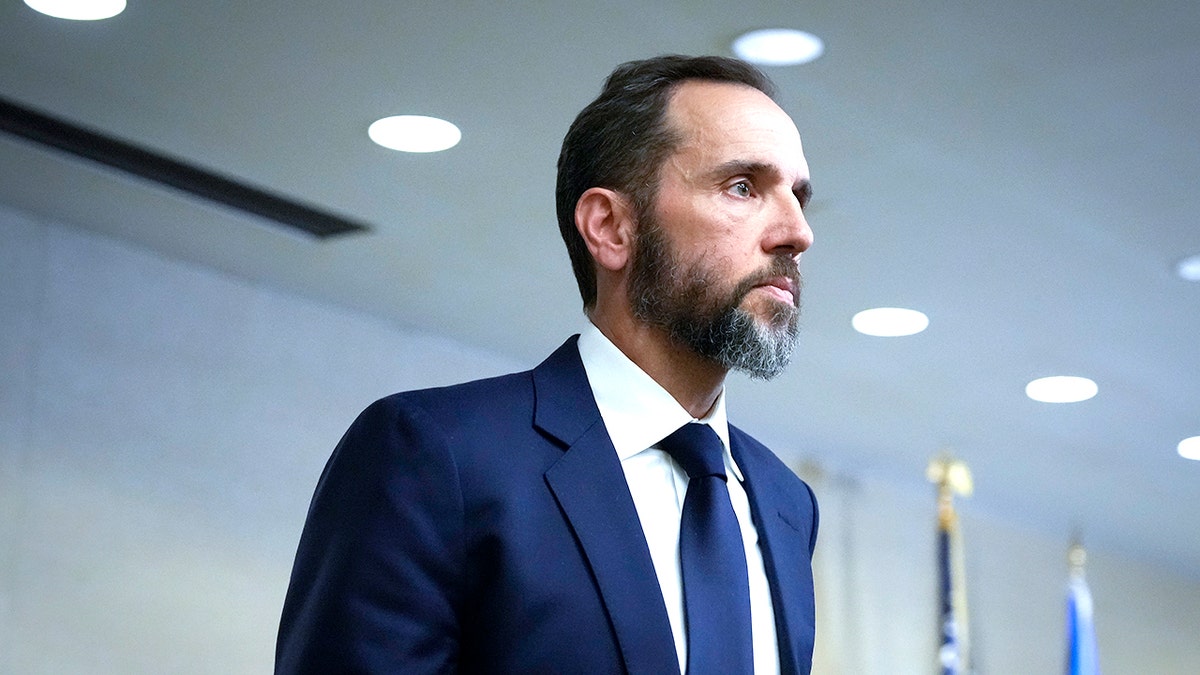
Special Counsel Jack Smith delivers remarks on an unsealed indictment including four felony counts against former President Donald Trump in Washington, Aug. 1, 2023. (Drew Angerer/Getty Images)
The end goal of the investigation is to see Smith disbarred from both New York and Tennessee, two states where he holds a license to practice law. Blackburn argued that Smith’s alleged spying on her and others was a «First Amendment and Fourth Amendment violation.»
Her latest push against the former special counsel came on the heels of another letter sent to AT&T, T-Mobile and Verizon demanding why the cellphone carriers allegedly allowed Smith and the FBI under the Biden administration to track their communications.
«You would have thought that, because of the Stored Records Act and the First Amendment, the Fourth Amendment and the Speech and Debate Clause, that at least Verizon, who’s my wireless carrier, would have informed me that there was a request on my records,» she said.
JACK SMITH TRACKED PRIVATE COMMUNICATIONS, CALLS OF NEARLY A DOZEN GOP SENATORS DURING J6 PROBE, FBI SAYS
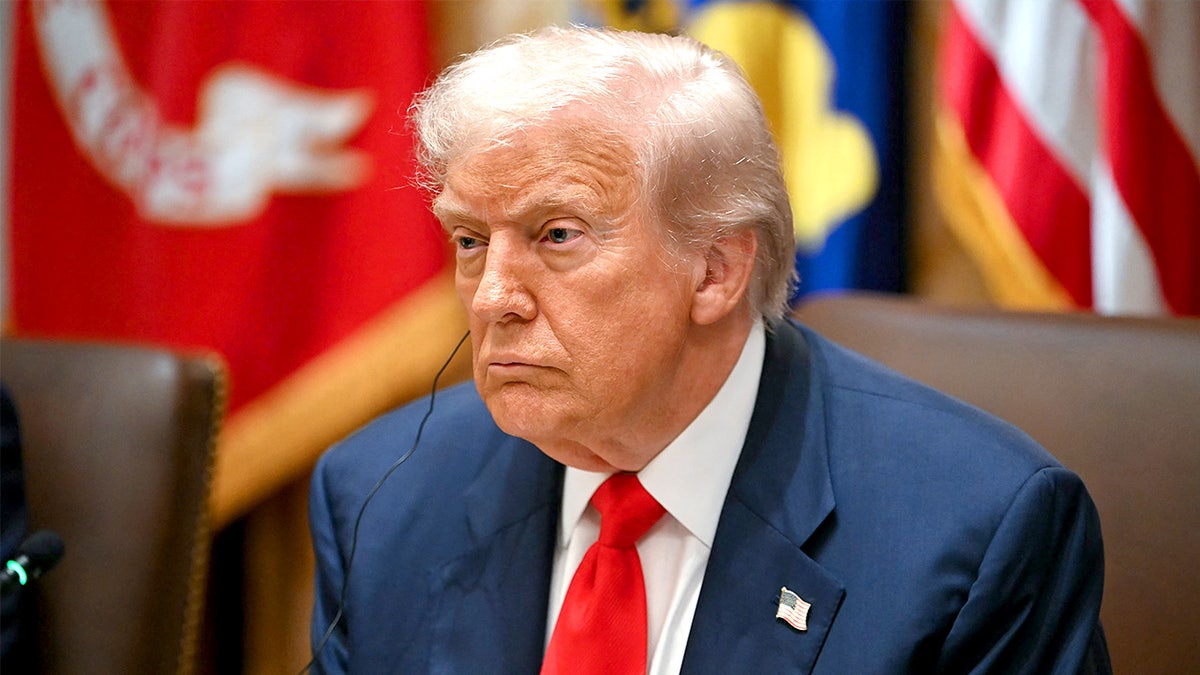
President Donald Trump listens to Argentina’s President Javier Milei (not pictured) in the Cabinet Room at the White House in Washington, Oct. 14, 2025. (Andrew Caballero-Reynolds/AFP via Getty Images)
«But of course, there was nothing given to us, and it’s the reason that we sent the letter to Verizon and then followed it with a letter … to the DOJ on Jack Smith,» she continued.
Smith is one of a handful of former officials that have been targeted by the DOJ under the Trump administration. He is currently under investigation by the Office of Special Counsel for alleged Hatch Act violations, which bars government employees from participating in political activities.
CLICK HERE TO GET THE FOX NEWS APP
Then there are federal indictments against former FBI Director James Comey for allegedly making false statements and obstructing justice, and former National Security Advisor John Bolton for allegedly mishandling classified documents.
Blackburn was one of many Republicans that railed against so-called political witch hunts against President Donald Trump when he was out of office. When asked what the difference between the indictments against Trump and his allies compared to the latest crop of former officials, she said it was about accountability.
«These need to be investigated so that this kind of stuff stops,» Blackburn said. «And one of the differences, I think you see between Democrats and Republicans, is Democrats repeatedly circle the wagons, and they push things under the rug, and then they want two tiers of justice. And with Republicans, the focus is on accountability and transparency, and I think that is a major, major difference.»
senate,justice department,corruption,donald trump,politics

 CHIMENTOS2 días ago
CHIMENTOS2 días agoLa fuerte actitud de Manu Urcera con Indiana Cubero que reveló la verdad de la interna familiar: “El saludo del piloto a la hija de Nicole Neumann por su cumpleaños”

 CHIMENTOS2 días ago
CHIMENTOS2 días agoLa cruda confesión del Turco Naim a 1 año de la separación de Emilia Attias: «Me di cuenta que hay que aprender a estar solo»

 POLITICA3 días ago
POLITICA3 días ago“El Pollo” Carvajal revela cómo Chávez pagaba a Kirchner, Lula y Petro con dinero del narcotráfico







